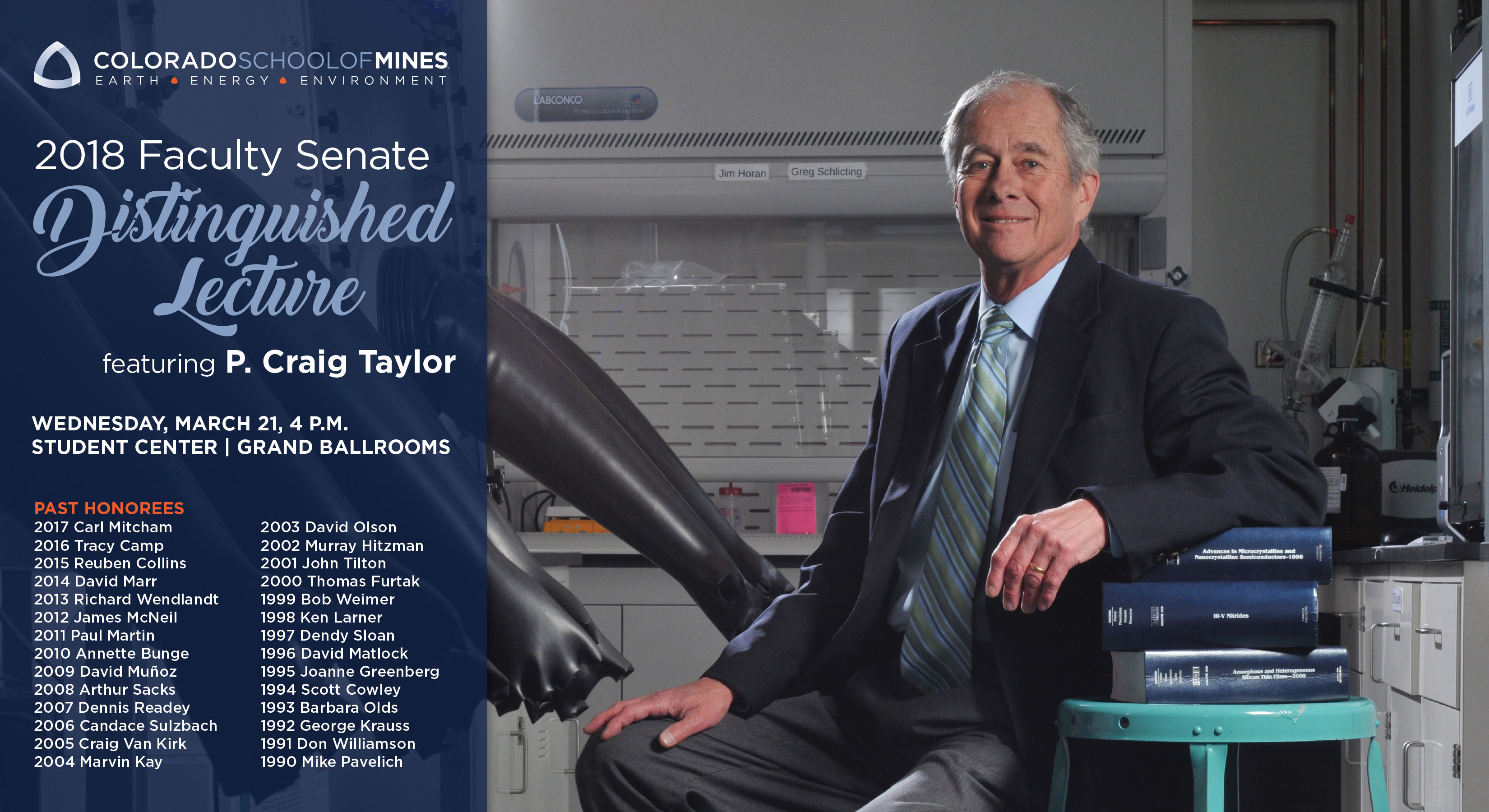2018 Distinguished Lecture Series: P. Craig Taylor

There is No Answer to That Question: Sound Scientific Judgment in a Rapidly Changing World
Sound scientific judgment involves much more than professional ethics. Although currently we try to instill in our students sound approaches to professional ethics through formal courses, we do not formally teach the much broader concepts relating to maintaining sound scientific judgment (assuming they can be taught), such as disregarding previous results of others, avoiding peer review, rushing to a conclusion to beat the competition, moving to a new field without careful study, and many, many more pitfalls.
A major difficulty in maintaining sound scientific judgment stems from the fact that most of the important questions in life cannot be answered using scientific or engineering principles. Therefore, maintaining sound scientific judgment through an entire career is necessary to avoid attempts to answer questions for which there are no scientific or engineering answers. This statement appears obvious, but there are many subtle ways to lose scientific credibility. I will discuss some examples from my long (some might say too long) career in science and try to extract some lessons learned.
Most of modern engineering and science involves understanding or explaining the world that cannot be seen. One suggested approach to instilling sound scientific judgment is to encourage great attention to understanding or explaining the world that can be seen. I will give some examples.

P. Craig Taylor received a PhD from Brown University in 1969. He was employed at the Naval Research laboratory from 1969 to 1982, after which he joined the Physics Department at the University of Utah, where he was chair of the department for a decade. Currently Dr. Taylor is emeritus professor of physics at Colorado School of Mines.